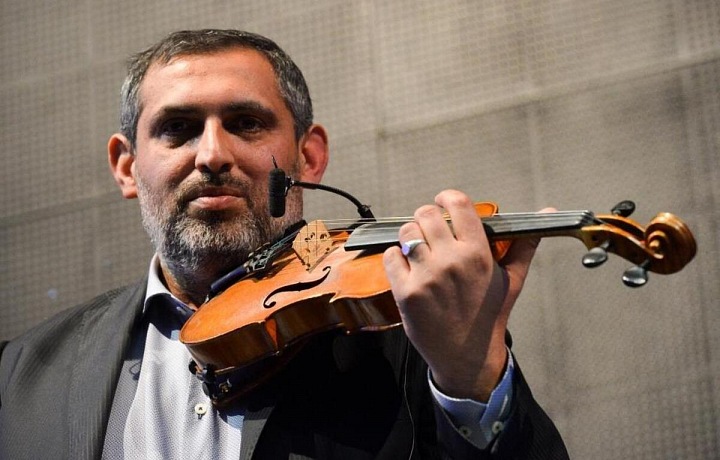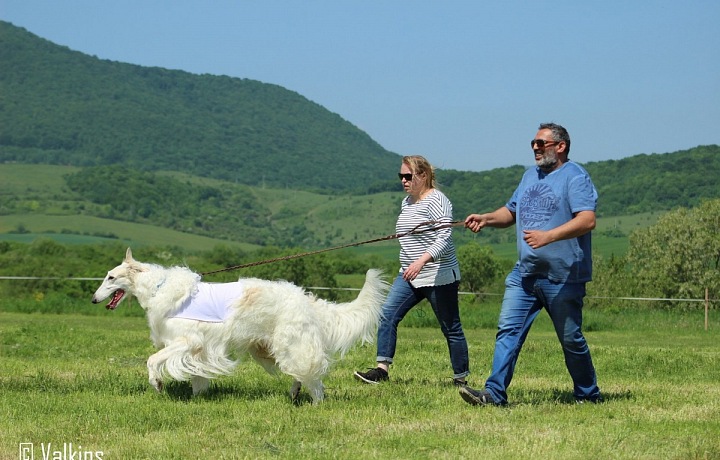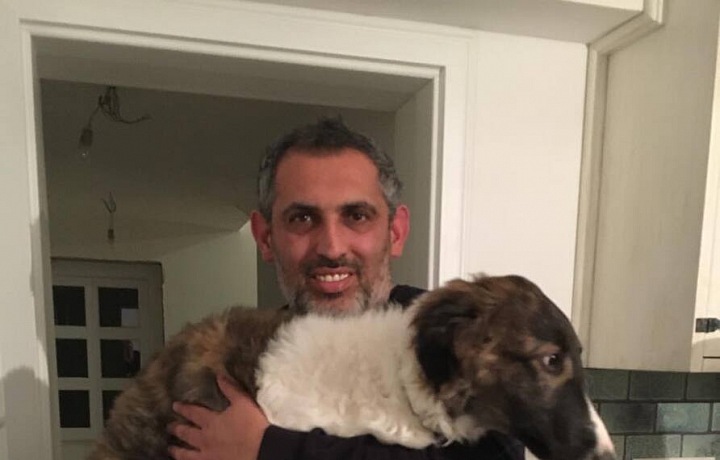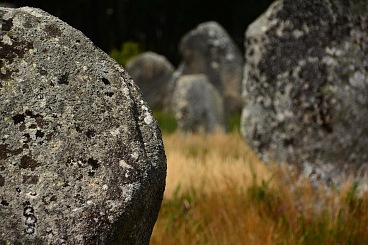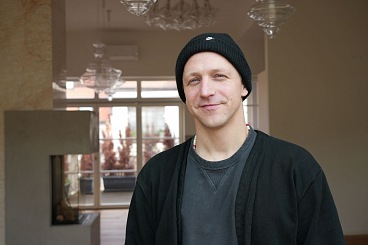Fast Confession: Alexander Daško: I never had to prove to anyone I was better than others
Roma settlements have their happy stories as well. Alexander Daško started from scratch. His will and talent made him a respected musician and a successful man. He is currently the director of the LAVUTA Private Primary Art School in Banská Bystrica, and in the past, he was also on the SMER political party's candidate list. He helps those in need and at the same time works on involving Roma in the workforce so that they can have their own income and be able to take care of their families and housing. In an interview with LP-Life.com, he openly revealed how he made it as a poor young man among celebrities, how people from the settlement now perceive him, we talked about Roma and non-Roma and racism in Slovakia, as well as his Russian wife, with whom he lives in Slovakia.
Let's try and reminisce about your very beginnings. You lived in poverty in a Roma settlement; you are one of 13 children. What memories do you have of the place where you were born? What conditions did you grow up in?
Some of our Roma lament how poor they are and how they have nothing to eat. But we had all the basic things we needed taken care of. We weren't rich. My beginnings were such that my parents really gave us what we needed to give to our children, which is fantastic and great.
Do you think you have it harder in life as a Rom?
There are Roma who say they have to work twice as hard, prove the majority that they are better than them twice as much. I must honestly admit, maybe someone will get mad at me... I'm about to be 53 years old soon, and I've never had to prove to anyone that I'm better than anyone else. If a person is normal, they are treated as normal too.
Were you born into a musical family? We hear you're a musician...
My father was a musician, but an amateur one. Actually, my uncles were amateur musicians as well, so in a way, yes.
What was your life like after you found out you had musical talent?
My mom always wanted one of us 13 kids to be an artist. Somehow, it never seemed to work out. With me, the last one, the youngest, she decided that „it has to be you, whether you want to or not.“ At first I didn't want to, I admit, but then I started to enjoy it and I started to work hard at it.
How did the inhabitants of the settlement react to this success?
When I started exercising, my peers always watched me through the window, signalling that "dilino, how about you stopped already." But I went for my goal. At first, they were made fun of it, but now when I come to the settlement they say, "we used to poke fun at you that you’re such a dilino (dummy), but today we see why you did it."
Let's move on to your band, when did you decide you wanted to have a band?
I didn't decide it, other people decided. When I came back from the army, I was in an art ensemble in Brno, the "Jánošík", and they found out that there was a vacancy for the first violin, so they came all the way from Banská Bystrica to me in Černý Balog and said they needed a first violin for their tour in Austria. So I agreed and found out that the tour meant playing in the streets of the cities. Well, now that I was there, that was that. I played, I couldn't back out. There's also a funny story about that. We slept outside or in the car a couple of times. We even slept under a bridge once. I came home and my father said, "Where did you stay? I lied and told him I was staying at a hotel. God knows where you slept under a bridge, he says, and I look at him, dumbfounded. Did someone in the band spill it? But I guess it was just a hunch.
Where else have you toured?
Pretty much all over Europe, Asia, Russia, Belarus, the Baltics, Uzbekistan and basically all over Western Europe.
Didn't people look down at you because you're, for example, Roma?
To Russia, for one, I've been going for almost 25 years now, and I can say that they have adopted Romani culture as one of their treasures. It's so intertwined that today it's hard to tell what's Russian and what's Romani. Even in the West, all respect to some countries. Looking at Romani culture, it is linked to French or Spanish culture, for example, in a way. And it is similar in some ways to Russia there. Other countries, well... at one performance, a German woman came up to me during the intermission and asked me in German if I was a real Gypsy. And I said why? She says: last time there was a Mexican band here, and they were Germans in disguise. I told her, we're the original. And then she even goes on and touches my face to see if we're wearing makeup. Moments like that happen in my artistic life as well. But I think that the Slavic nations are much closer to the Romani culture, at least in my experience.
What do you personally think about racism against Roma in Slovakia?
There are two sides to that coin. There is a certain racism, but on the other hand, we do it to ourselves. The situation is this: if a white person doesn't want to do something or won't give us something, he gets called a racist immediately. Where do we draw the line anyway? Lately, the Roma among us have been taking advantage of this a lot. The fact that we haven't moved forward in thirty years on this issue is a problem. The media is also making a mistake. The money that is being spent on this is ending up God knows where. For example, how much money has been spent on the Roma issue in the first place. Today, every Roma could have a jacuzzi in his house for that money. It's hard to say. I like Slovakia. When I was abroad, I even forbade the band to badmouth our country, because it is the country where we were born and which gave us opportunity and possibility. You know, when someone says that the state doesn't take care of Roma... I think to myself, who took care of me? The Roma should want it in the first place, and unfortunately, there are those who don't want it because they have unfortunately become accustomed to this system. After the revolution, when the Roma lost their jobs, new working conditions should have been created while they still had their working habits. Now, several generations have passed and from one generation to the next no one has done anything. Some say they didn't get the opportunity because nobody wants to employ Gypsies. That could be, I'm not saying it’s not. But we should have shown right from the beginning that we want to work, we want to be full citizens of this republic. Unfortunately, I blame the state again for giving them the opportunity to sit at home and getting paid for it rather than creating job opportunities.
They say we shouldn't lump all Romani people together... is that right?
Certainly. I wouldn't dare to say that. We have really skilled Roma here, especially in the artistic sphere.
What problems do Romani people in Slovakia have?
It's the level of education, because it ends with compulsory schooling. And then there's the role models. Kids see that their father didn't work, so they won't work either, and survive somehow. There is no goal that they want to achieve. Why do I say that? How come that I saw that goal? I said in an interview that I climbed on the hill, looked at our settlement and I said to myself: I can't live here. The only ticket to the rest of the world is art and music. When I came from Černý Balog to Banská Bystrica for a violin competition, it was like coming to Prague. And then when I came to Bratislava for the national competition, it was as if I had arrived in New York. For me it was something fantastic. I was always watching people, faces, who's who... They just have no motivation, no goal. Their only goal is to stay in the settlement, because the Roma mostly live in the community, they will always live in the community, and then the young people have children, their children have children themselves, more children, and so on and so on.
So why is there such a big gap between integrated and marginalized Roma?
The integrated ones are the ones who want to. They know that without being educated and working on themselves, they cannot make it in this system. The marginalized are the group who don't give a damn. They don't care that you come up with a project and want to help them... Unfortunately, I have to blame the third sector again. We have taught the Roma to hand-hold and being nannied through every activity. I would say that soon I will have to assist them in brushing their teeth in the morning.
You are a public figure now. Don't the Roma envy you? Don't they say you don't belong in the settlement anymore?
When I arrive in the settlement, it's mainly the old Roma there who are all formal with me. And they’re the same people who used to call me by my first name when I was a boy. I say to them: why the ceremonies? We were always on first-name terms. And they said, I'll say it in Romani: "You're a big man now, so we have to be on formal terms with you." And I tell them I’m the same and always will be the same as I was then.
Your wife is from Russia. How did you meet her? Did you wander into Russia?
On the contrary. She wandered here. I remember 1989 very, when the Soviet troops had already been sent home, we somehow got together and she stayed here. Otherwise, what's interesting, you talk about racism against the Roma. But she once said herself that the kind of racism that there was against her when she stayed here... there was such an anti-Russian atmosphere then, how many times she went to the shop and heard that they don’t serve Russian swine, they don’t want them shopping there, but... how is the Russian worse than us? If he doesn't deal with politics and he's a normal, ordinary citizen... after all, how many people are there in Russia who don't identify with the current politics? You know, it's the collective guilt all over again. Lumping everyone together just because they’re Russian, even though they may not share the same opinion about the political situation in Russia, for example. We lump every nationality together. So she has also experienced a certain kind of discrimination.
I would be very interested to know what attitude they have towards the Roma in Russia?
Since there are about 137 nationalities in Russia, they have accepted them as their own. They have never made distinctions between Russians, Gypsies and the like. Once they’re all citizens of either the Soviet Union or Russia and that’s that. Of course, they have to abide by the laws that apply in a particular country. They really have accepted them. That alone is proof - the only Roma theatre in the world, the Romen Theatre in Moscow, was founded 86 years ago. That's a really long time. Just yesterday, after the concert, I was talking about how rich Romani culture really is. It's a jewel that many countries don't know how to exploit, yet in Russia, they use it to its fullest. There, state events cannot do without Roma or Roma culture, and neither can films. Films made by Nikita Michalkov. I know about ten films that would not have been made without the Roma. It's a kind of, I don't want to call it positive discrimination, but they don't even see it that way anymore. We want to, because it's a tradition. However, in Russia, when there is a celebration, they say it’s no celebration without Gypsies. They really take that culture as their own.
In the past, you decided to enter politics and ran for the parliamentary elections for SMER - SD...
My father was always left-leaning. They were supposed to make the social policy work, since it was in their programme. I took it to mean that the Roma being socially excluded is one thing. The second thing is that it was one of the strongest political parties, and if you want to solve the problems that our Roma have in Slovakia, it would be pointless to go to a party that doesn't have the "drive"... to join a small, I don't want to say insignificant party. That was basically my reason "why".
You yourself have been organizing a festival project called „Cikánský oheň“ (Gypsy Fire) for several years. Can you tell our readers what it is about?
It's a project that has been running for about 15 years. There are a lot of Romani festivals in Slovakia. This festival, like this school, has the added value of introducing our culture to the majority. We didn't want to slip into the position where we only show bands from the settlements all the time. We want to show a very high-quality Romani culture that has something to present and say. Yesterday's concert was proof of that, with representatives of Romani culture from Serbia, the Balkans, Slovakia and Hungary. After all, Maroš Čekovský - everyone considers him to be one of us. Surely I don't need to introduce Goran Bregović, who has revolutionized the Balkan Romani culture and made it so visible that it is now the most popular in the world. Well, I guess that's that.
Thank you for the interview.
Fast confession:
What does Slovakia mean to you?
Many politicians do not agree with the Pope visiting the "Luník" housing estate in Košice during his visit to Slovakia. What do you think about that?
What musical instruments do you play?
How would you describe the political situation in Slovakia?
Who is your favourite politician and why?
What does your wife say about Slovakia?
Where do you see yourself in 10 years?
What do you think of the coronavirus vaccine?
How did you propose to your wife?
How many geese do you have at home?
Do you remember how much your first fee was?
Why are Roma weddings so lavish and expensive?
What's the difference between Slovak and Czech Roma?
Perhaps the most well-known stereotype about Roma is that dancing is in their blood. Are you the same way?
What would you ask me?
I'd love to go.


